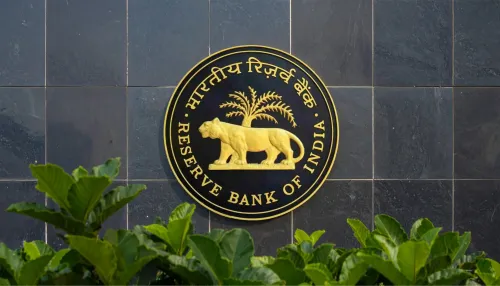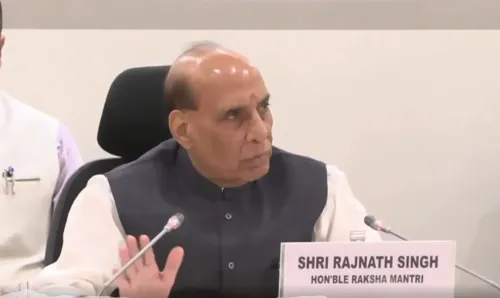What Are the Legal and Financial Concerns Surrounding WeWork India Amid Sluggish IPO Response?

Synopsis
Key Takeaways
- WeWork India's IPO has a muted response with only 16 percent subscription.
- Investor caution is urged due to ongoing legal issues against promoters.
- High lease costs consume 43 percent of revenues, impacting financial stability.
- All IPO proceeds will go to selling shareholders, not for company growth.
- Dependence on a 99-year license with WeWork Global poses additional risks.
Mumbai, Oct 7 (NationPress) The workspace solutions provider WeWork India Management Limited is witnessing a lackluster response from investors for its Rs 3,000-crore initial public offering (IPO), as concerns have been raised by governance advisory firm InGovern Research Services Private over its poor financial performance, ongoing legal issues involving its promoters, and significant dependence on the WeWork Global brand.
According to data from the NSE, the IPO -- which is set to close for subscription today -- has only seen a 16 percent subscription rate as of the time of this writing.
Retail investors have participated at a rate of just 46 percent of their allocated quota, while non-institutional investors and qualified institutional buyers have only subscribed 8 percent and 9 percent, respectively.
The sentiment remains tepid even in the grey market, where shares are trading flat around Rs 648 -- the upper limit of the price band -- with no grey market premium (GMP) to speak of.
In a comprehensive report, InGovern Research advised potential investors to exercise caution regarding WeWork India due to its unsatisfactory financial metrics and the ongoing legal troubles of its promoters, Jitendra Virwani and Karan Virwani.
The advisory firm pointed out that all proceeds from the IPO will be allocated to selling shareholders and promoters, implying that no new capital will be injected into the company for growth or debt alleviation.
Furthermore, it noted that WeWork India has been consistently reporting losses, negative cash flows, and substantial lease expenses that consume over 43 percent of its revenue.
As of March 31, 2024, the firm had a negative net worth of Rs 437.4 crore, and its reported net profit for FY25 was primarily due to a deferred tax credit of Rs 286 crore, rather than any operational recovery.
InGovern also highlighted that the company's occupancy rates are below those of its competitors, indicating a sluggish demand recovery and underutilization of assets.
Adding to investor concerns are ongoing criminal cases against the promoters for alleged activities including criminal conspiracy, cheating, breach of trust, and money laundering.
Moreover, a writ petition filed in the Bombay High Court by investor Vinay Bansal alleges that WeWork India’s draft red herring prospectus contains misleading information and omits critical details, including a chargesheet lodged against its promoters for serious economic crimes.
The report emphasized that WeWork India's operations are heavily dependent on a 99-year license with WeWork Global, making it susceptible to brand and compliance risks.
Any disruption in access to WeWork’s platforms or changes in intellectual property ownership following the recent restructuring of its US-based parent company could adversely impact the firm’s operations.








